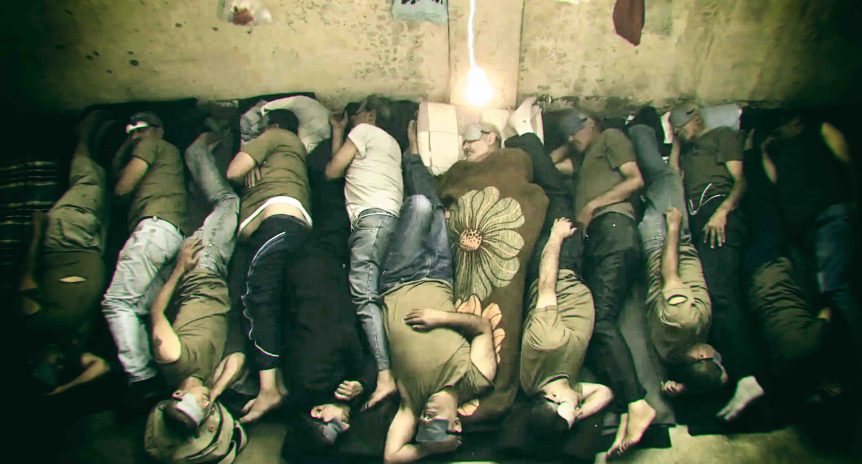It all began with the teenagers from Daara, a city in Southern Syria, who were responsible for the graffiti reading “Next it’s your turn, doctor” in March 2011. The choice of words was a reference to President Bashar al-Assad’s training as a medical doctor before succeeding his father in 2000, and their actions had been guided by hope in the blooming Arab Spring and the potential for a more democratic future. Because of the graffiti they painted on their school walls, however, they were detained, beaten and tortured by the regime. After some of them died, their bruised and mangled bodies were returned to their families; it was the spark that made the revolution spread to other regions of Syria.
Now, tens of thousands of people are being unjustly and unlawfully detained in inhumane conditions in Syrian prisons by the Assad regime. Thousands of them have died (estimates put the death toll at roughly 200,000, but it is likely that it is much higher), and hundreds of thousands have been forced to flee their homes to avoid the same fate (an estimated 11 million Syrians have left the country). Anyone and everyone who is suspected of opposing the regime is at risk: it does not matter whether they are men, women or children, it does not even matter whether the suspicions are correct.
Detainees face continuous beatings and torture by the guards during their time in prison. The goal is, sometimes, to make them confess to the crimes they suspect (even if they are nonexistent); other times, it is only for the guards’ own pleasure. The pictures coming out of Syria depicting survivors who manage to escape, as well as those of the dead bodies, bear a painstakingly close resemblance to those of Nazi concentration camps survivors after the Holocaust. They are emaciated, beaten, starved, bruised, and bear the signs of repeated torture.
Physical abuses are not the only kind that happens on a regular basis in these facilities: prisoners are forced to witnesses others being tortured, beat one another, and sometimes even tag the bodies of those who do not make it. Omar Alshogre, the Director of Detainee Affairs at the Syrian Emergency Task Force, spent three years in different prison branches. He was arrested with three of his cousins in November 2012, at 17 years old (his cousins were 17, 19 and 22), and subsequently detained with them. He recalls: “We started in our town and they took us to the prison there before we were transferred to another one, we were there for four hours. And in those four hours, they tortured [my cousins] Bashir and Rashad in front of their sister just to break them, to take away their dignity; not to get any information or anything”. They were later transferred to another facility in Tartous where, for twenty days, the guards “put me on a chair and took off my blindfold, and on the other side they were hanging Bashir to the ceiling and saying to me ‘The more you talk, the less we torture him; the less you talk, the more we torture him’ […] and other days they would put Bashir on the chair and hang me to the ceiling and torture me”. Omar and his cousins were then transferred to the infamous Branch 215, where both Rashad and Bashir died — the latter in Omar’s arms as he was carrying him back to their cell. They also spent some time in Saydnaya prison, also known as “the slaughterhouse”.
The families of those detained by the regime often find themselves facing the impossibility of locating their loved ones: in fact, the Syrian government usually operates outside the law, sometimes even denying having arrested the individuals in question. Family members of the prisoners end up paying considerable amounts of money — up to $50,000 — in the form of bribes to the prison guards to obtain information about their loved ones or to get them out. After his father was killed in a raid on his village, Alshogre’s mother managed to put together $20,000 and bribe the guards so that he would be smuggled out of prison through a mock execution in June 2015; he weighted 75 pounds. The Syrian Intelligence had previously told her Omar was dead: this, unfortunately, has become the reality for so many families who have no choice but to trust what they are told, even though it is often false information.
These actions by the Assad regime constitute gross violations of human rights as well as of international law (e.g., of the Torture Convention and of the Geneva Conventions) for which he might be held accountable, even in the near future. In fact, the Government of The Netherlands has brought a case to the International Court of Justice (ICJ) based on the Syrian government’s violation of the provisions of the 1984 Torture Convention, to which Syria acceded in 2004 — in international law, accession has the same value as ratification.
The international community has, however, until now largely turned a blind eye to the people detained in Syria. It is time for them to take responsibility and put an end to the bloodbath that has become the Syrian revolution. It is time for them to isolate and cut off the Assad regime, so that it will have no more support nor resources to carry out these terrible, inhumane actions against its own people. It is time for them to hold those responsible for these horrible, inhumane actions accountable. The people of Syria, the victims, and their families deserve as much.
Nobody should ever be treated as less than a human being, nobody should ever have to serve time for crimes they did not commit. Nobody should ever have to suffer the consequences of wanting a better, freer future.

